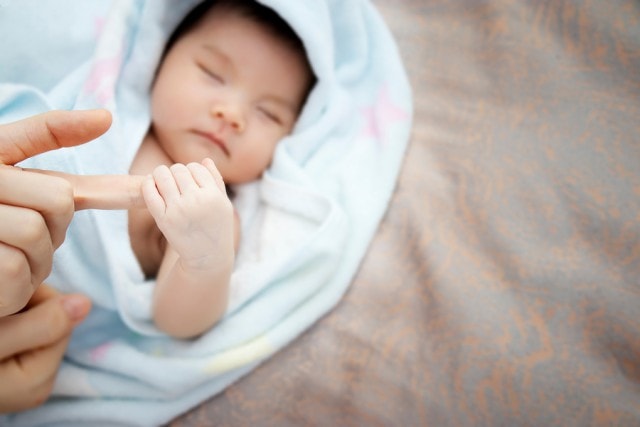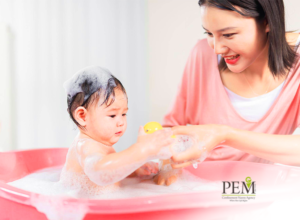[email protected] ♦ (+65) 6293 9249 ♦ Mon - Sun : 10:00AM - 7:00PM
The History Behind The Traditional Confinement Practice

The practice of post-delivery confinement has evolved over the years. But in some countries, like China, the practice is still common. Conventionally, the period of confinement is around a month before delivery and a month after birth. However, there can be adjustments according to the preferences and conditions of the new mother and her baby.
The Chinese culture has embraced confinement for over 2000 years. It was believed that if a woman did not observe the practice, she would be unable to avoid some complications. Frequent headaches, slow recovery, back pains, a stunted baby, and constant wails from the newborn were associated with taking a confinement shortcut. No woman would ever want to go through these difficulties. If so, you would want to follow the confinement practice. New mothers in the modern world are now very keen on this tradition.
In the 17th and 18th centuries, the nobles practised confinement. People experiencing poverty could not leave their daily chores because they always catered for their families. The rich and middle class could delegate their responsibilities to their maidservant and afford rest for two months. The tradition was widespread in most parts of the world. The only difference was the activities carried out during the confinement period. Here is the list:
Diet
The diet for mothers in confinement is an integral part of this period, and the food changes weekly. In the first week, the new mother takes food that will assist in expelling placental blood from the system. In the second week, food rich in iron is focused on rebuilding the body and helping replenish blood loss. In the final two weeks, foods that will help increase milk production for the baby are significantly emphasised.
Movement Restriction
Movement restriction is one of the practices that cut across the board in all cultures. Pregnant or nursing mothers were not allowed to walk for long distances. In some communities, like the Chinese, the woman was not to leave the compound of the family. However, in late 1900s Singapore, the restriction was less stringent. Though their movement was restricted, women could leave the compound.
Today, the dynamics have changed because the mother and the baby have to leave their homes to visit a doctor, psychologist or nutritionist. However, in cultures where the practice is still followed religiously, a home nurse is always needed to care for the mother and baby.
No shower
This could be the most challenging part of a traditional confinement: two months without a bath. There was a widespread myth that water caused a blood clot, so women were not to take showers. Another reason was to prevent pregnant women from exposing their babies to colds.
This practice is unhygienic. It puts the mother and the baby at risk of contracting hygiene-related complications like cholera. It would be beyond imagination to breastfeed your newborn, having not taken a shower for a month. Most new mothers no longer follow this practice during their confinement.
Warm Clothing
It didn’t matter whether it was summer or winter. You had to be wrapped up in many pieces of clothing to keep you from cold. It was believed that expectant or nursing mothers could feel the cold even during summer, which was definitely not the case.
Today, women are dropping the outdated practices of confinement. It is vital that you put on clothes that you feel comfortable in. There is a story of a Chinese woman who died from heat stroke during confinement. Putting on heavy clothes even when it is sunny could harm your health.
Traditional confinement practices can also be seen as common in other parts of the world than in China. Let’s dive into the different confinement practices in Indian and Malay cultures.
INDIAN
In Indian culture, the confinement period runs a little longer than for the Chinese, from thirty to forty days. There is a saying common among the Indians: the first forty days shape the baby’s next forty years. It takes roughly forty days for the new mother to regain her energy and resume her daily chores.
During confinement, mothers have massages and reduce fatigue using nurturing oils like coconut. The massage helps to improve blood circulation and soothe the muscles and bones. Hot water baths focusing on the uterus have to happen each day.
After baths, a sari (traditional Indian garment) made of cotton is tied around the mother’s stomach, and it helps to push back the uterus and expel stomach gas. Mothers also take Ayurveda tonics to help with the recuperation process.
The confinement food menu during the period focuses mainly on garlic and shallots that help with the mother’s immunity and in milk production for the infant. The diet also includes ghee, coconuts, different types of nuts, mutton soup, fish and the signature Indian spices.
MALAY
Just like the Indians, Malays have an extended confinement period of 44 days that has many traditional routines and rules. Discipline is vital to seeing you through the confinement period. It’s a mean task, and the midwife, nanny and grandmothers are encouraged to assist the new mother. Occasionally, the mother can enjoy a delicacy from a reputable confinement food catering Singapore service provider.
Malay women have to go through a hot compress early in the morning before having breakfast, combined with full body massages for the first and last three days of confinement. The Bengkung or girdle is also worn during confinement and acts as a postnatal corset to help shrink the mother’s bulging tummy.
To avoid a gassy stomach, the mother must keep wearing socks during confinement. She also has to keep her feet warm at all times. Cold drinks and food are avoided to help the womb return to its initial position. Herbal baths are also part of the confinement period to assist in blood circulation and act as a type of therapy for the mother.
Most confinement rules these days are a more lax version of the original practices. One thing common to all the traditions is that a mother’s well-being comes first so she can become a good parent to her baby.
The confinement practices are still common today. However, it should be tailored to fit a modern woman. No one wants to stay for a month without a shower. Once in a while, you will need to visit your doctor or dietitian. Some light exercise may also be a necessity. Embrace what is vital, such as diet and a cosy massage and do away with what is irrelevant. You can get a confinement nanny to help you around during the period.







